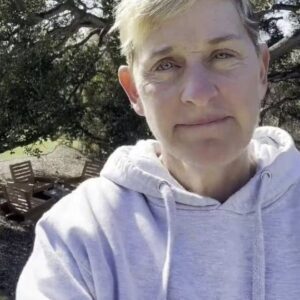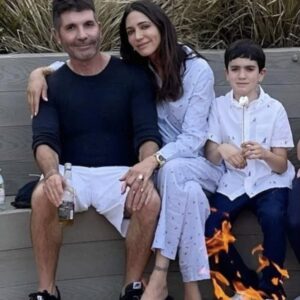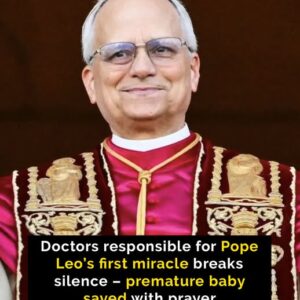I was leaving the grocery store with my 8-year-old son, Liam. It had been a tough year since my husband passed—grief, single parenting, and sheer exhaustion weighed me down.
While loading the car, I noticed a man sitting by the edge of the parking lot. He was huddled under a tattered blanket, his face red from the cold. Next to him sat a dog—a scruffy little mutt, visibly shivering. As we were going to leave, the man stood up and approached us. My heart jumped—I wasn’t sure what he wanted.
“Ma’am,” he said in a hoarse voice, “I’m sorry to bother you, but… would you take my dog?”
His words stunned me. He looked down at the ground, embarrassed, and continued. “Her name’s Daisy. I love her more than anything, but I… I can’t take care of her anymore. She’s freezing, and I don’t have enough to feed her. She deserves better.”
I opened my mouth to say no. I really did. I was already overwhelmed with everything in my life. But then Liam’s pleading eyes stopped me. “Mom, please. She needs us.”
And just like that, we brought Daisy home. That night, Liam bathed her and wrapped her in his favorite blanket. For the first time in months, warmth filled our home again. A month later, Daisy had become part of our family—playful, loving, and exactly what we needed.
Then, one evening, I found an envelope in our mailbox. It was strange—no stamp, no return address, just the words “From your old friend” written on the front.
Curious, I opened it. Inside was a letter. But it wasn’t for me.
The letter was addressed to “My Dearest Daisy.” It was handwritten in shaky cursive, and every word seemed soaked in sadness. He told Daisy he missed her every day and dreamed about the life she would now have, far better than anything he could offer. He asked her to forgive him for letting her go.
He ended it with something that made my stomach flip: “Tell your kind new family thank you. And if they ever want to find me… look under the old elm tree behind Willow Street Church.”
That night, I barely slept. Who was he, really? Was he okay? The next morning, over cereal, Liam kept asking if Daisy’s old friend would come visit. His innocent questions made me feel responsible—like I had unfinished business.
After dropping Liam at school, I drove to Willow Street Church. The neighborhood was older but quiet. Behind the church, a massive elm tree stood with twisted branches that looked like outstretched arms. I half expected him to be there waiting. But no one was around.
Instead, I noticed a small, dented coffee can tucked into the tree’s gnarled roots. My hands shook as I pulled it out. Inside were photos—faded pictures of Daisy as a puppy, sitting next to a smiling man. He looked healthier, happier than the man I met. There were also postcards from different cities, addressed to someone named “Marta” with sweet words about dreams of a family and a house someday.
Underneath everything was a folded note: “If you find this, please don’t judge me. I wasn’t always like this.”
I sat on the cold ground, reading and rereading those words. I thought about how easy it is to see someone like him on the street and assume the worst. But here he was, a man who loved deeply, who once had hope, who’d lost so much.
Driving home, I decided I couldn’t let it end there. I asked around the neighborhood, showed a photo of him I’d taken with my phone the day we met. A store owner recognized him. “That’s Felix,” she said. “Used to work construction. His wife died suddenly. He lost everything after that.”
Her words hit me like a punch. I thought about how close I’d come to falling apart myself after my husband died. How just a few friends and family kept me standing. What if I hadn’t had them?
The next day, I packed a bag with warm clothes, sandwiches, and bottled water. Liam insisted on adding one of his toy cars for “Felix to have something fun.” We went back to Willow Street Church, hoping to find him.
Hours passed without a sign of him. Just when we were about to leave, I saw a figure walking slowly along the sidewalk, leaning heavily on a cane. It was him—Felix. His eyes widened when he saw Daisy run toward him.
For a second, I worried he’d try to take her back. But he just knelt down, hugged her tight, and whispered, “You look so happy, girl.”
I told him how much Daisy meant to us. How she’d helped Liam sleep through the night again. How I’d started smiling more, just seeing her silly tail wags.
Felix smiled, eyes glistening. “That’s all I wanted for her.”
I offered him the bag we brought. He hesitated, then accepted it with a quiet “thank you.” Liam handed him the toy car, and Felix let out a surprised laugh—a laugh that seemed to shake off years of sadness, if only for a moment.
We started visiting him every few days. Sometimes I’d bring a hot meal; other times we’d just sit and talk. He told me about his wife, Greta, and how they used to spend Sundays making pancakes and singing old country songs. He confessed he’d been too ashamed to ask for help when she died, certain no one would care.
Our friendship grew slowly, but it grew. Liam looked forward to our visits as if they were family outings. Daisy, of course, treated Felix like an old friend every time.
One afternoon, I noticed Felix coughing worse than usual. His cheeks were sunken, and he looked pale. I asked if he wanted to see a doctor. He waved me off. But later that night, I couldn’t shake the feeling he needed more than what I could offer.
I called my brother, Eamon, who worked at a local outreach program. He promised to send a team to check on Felix and offer him a spot in a transitional shelter. I worried Felix would hate me for interfering.
But when we met him the next day and I told him about the shelter, he surprised me. He held my hand, voice hoarse but strong, and said, “No one’s cared about me like this in a long time. Thank you.”
He moved into the shelter, where he got regular meals, warm clothes, and a safe bed. Over weeks, he started looking healthier. The staff even helped him apply for work as a handyman. Every Sunday, we’d pick him up for lunch and spend the afternoon at the park with Daisy chasing squirrels.
As Felix rebuilt his life, I felt something shift inside me, too. I realized helping someone else gave me a sense of purpose I hadn’t felt since before my husband died. Our home was warmer, not just because of Daisy, but because Liam and I had opened our hearts again.
Months passed, and Felix eventually saved enough to rent a tiny apartment above a bookstore. At his housewarming, he cooked dinner for us—spaghetti with sauce that tasted like comfort and old memories.
I noticed a framed photo on his wall: one of him, Daisy, Liam, and me standing together, smiling under the elm tree. He’d written on it in careful letters: “Family is where you’re loved.”
On the first anniversary of when we took Daisy in, we threw a little party. I baked a cake shaped like a bone for Daisy. Felix made his famous peach cobbler. Eamon and his wife came, bringing more food than we could eat. The house rang with laughter, and for the first time in years, I felt truly at peace.
During the party, Felix pulled me aside. “I never told you why I wrote that letter,” he began. “I didn’t expect you to actually read it. I just… I needed to feel like I was saying goodbye properly.”
I told him it was the best letter I’d ever received. Because it started something that saved both of us.
As I watched Liam chase Daisy around the backyard, I thought about how one small decision—taking in a scruffy dog—had changed everything. If I’d said no that day, I’d still be lost in my grief, and Felix might still be out in the cold, alone.
It reminded me how we’re all just one act of kindness away from turning someone’s life—and our own—around. It doesn’t take grand gestures. Just a moment of compassion. A simple yes.
I’ve learned that family isn’t just who we’re born to, but who we choose to stand by when things get hard. That even when life feels hopeless, there’s always a chance for new beginnings.
Felix, Liam, Daisy, and I still spend every Sunday together. We’ve made it our tradition. Pancakes, country songs, and laughter fill our mornings. We talk about Greta, about my late husband, and about the future—because now we believe in one again.
I don’t know what tomorrow holds, but I know we’ll face it together. And that’s enough.
If you ever doubt how much a small act of kindness can matter, remember this story. One dog, one choice, and one friendship changed everything.
Please share this post if it touched your heart, and like it so more people can be reminded of the power of compassion. Let’s spread the hope we all need.





